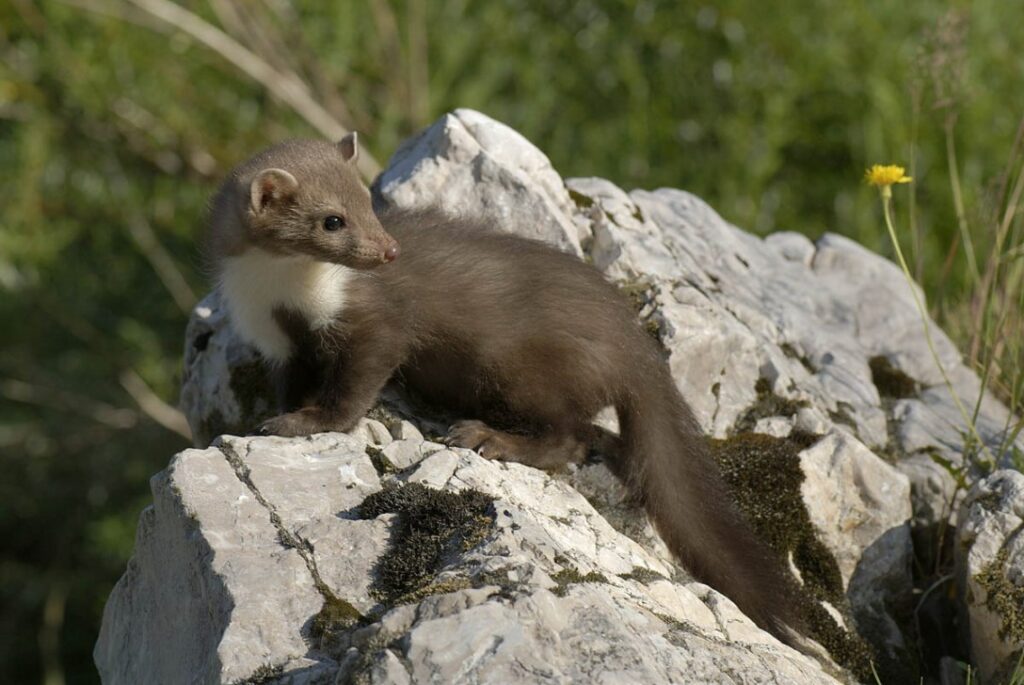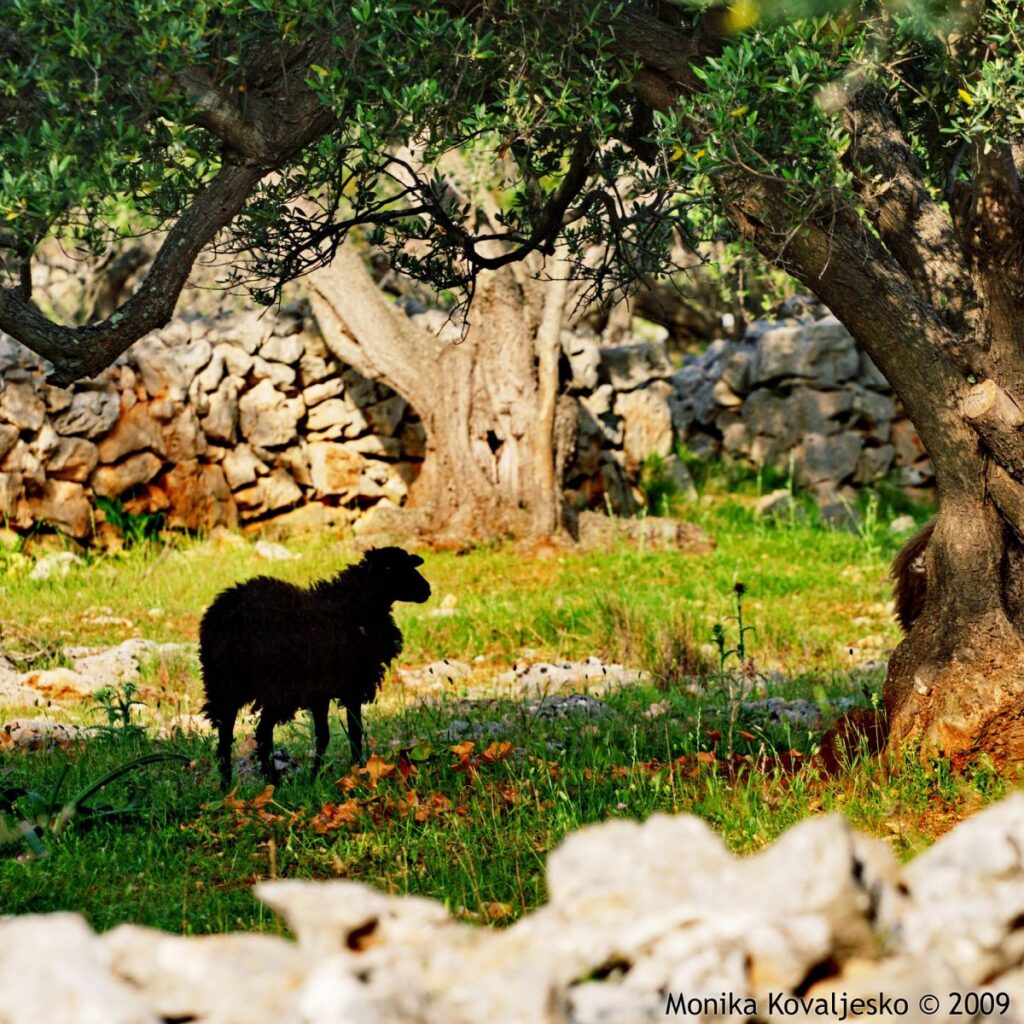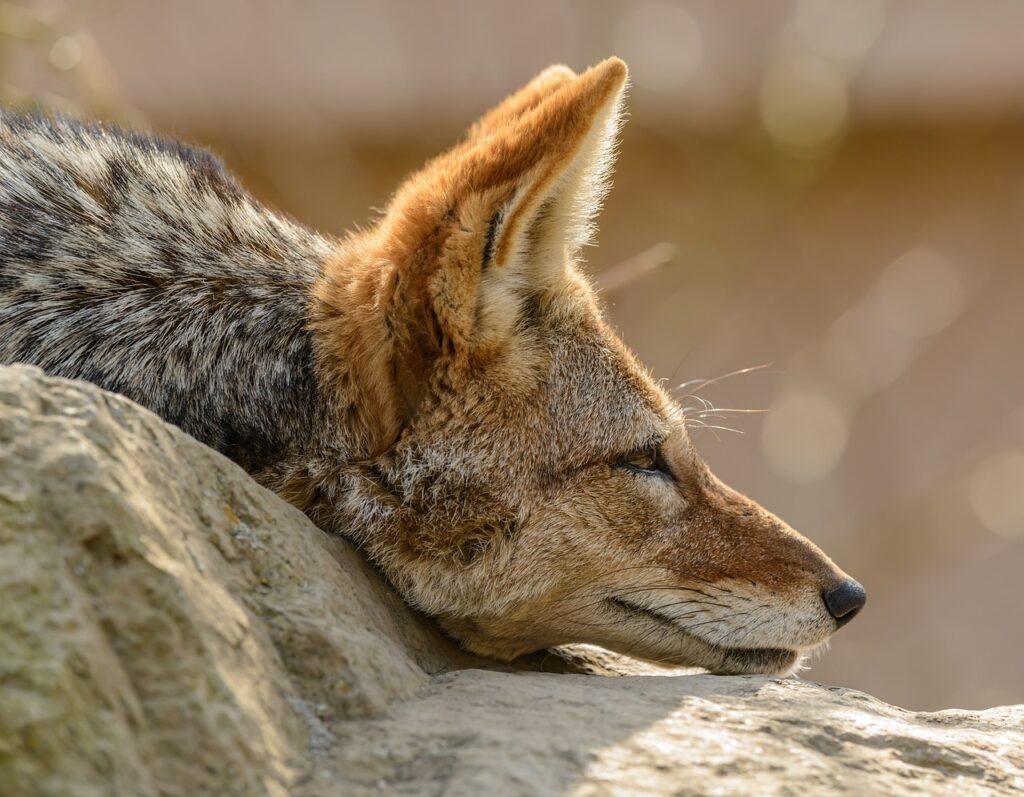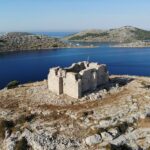Amidst the azure expanse of the Adriatic Sea lies the Kornati Islands, a sanctuary where nature’s myriad wonders thrive. In this haven of biodiversity, a recent addition has ignited a transformation: the arrival of Canis aureus, the Golden Jackal. The introduction of these clever island voyagers in 2020, as they swam from the neighboring Dugi Otok Island, marks a historic milestone in the evolving narrative of the Kornati Islands. This addition to the archipelago’s wildlife has brought both intrigue and challenges, reshaping the intricate balance of this pristine sanctuary.
Canis aureus: A Recent Island Voyager
In the year 2020, a remarkable event unfolded as the elusive Canis aureus, also known as the Golden Jackal, made its journey to the Kornati Islands. Remarkably, this clever traveler reached its destination by swimming from the nearby Dugi Otok Island, marking a historic moment for the Kornati’s wildlife.
Golden jackals (Canis aureus), also known as Eurasian jackals, captivate with their distinctive appearance and intriguing behaviors. Smaller than their close relatives, such as wolves and grey wolves, they boast slender bodies, sharp muzzles, and a characteristic bushy, black-tipped tail. Their sandy or yellowish fur gives rise to their “golden” name. These adaptable canines exhibit a spectrum of habits, from social family groups to solitary wanderers. Primarily crepuscular and nocturnal, they become most active during the evening, night, and early dawn.
In a fascinating twist, scientists on the Kornati Islands have discovered a unique population of white jackals, a genetic variation that adds an extra layer of intrigue to the Kornati’s jackal community, making them a captivating subject of study.
With an omnivorous diet that includes small mammals, birds, insects, fruits, and plant matter, they showcase their resourcefulness. Remarkably, scientists have observed traces on the sandy beaches of Kornati, suggesting that these jackals also feed on shells. However, it’s concerning that the primary food source for these jackals in Kornati is the local sheep, leading to significant losses for shepherds in the area.
Martes foina: The Original Inhabitant

Prior to the arrival of jackals, the Kornati Islands were graced by the presence of Martes foina, commonly known as the Beech Marten. These agile mammals had been the sole wild beasts in this serene paradise.
The Invasion of the Jackals: An Ecological Challenge
Jackals, though fascinating in their own right, pose an invasive threat to the delicate balance of this ecosystem. Their presence may bring about significant alterations in the landscape of the park.
A Threat to the Island’s Traditions

For generations, extensive sheep farming has been an integral part of life on the Kornati Islands. The sheep play a pivotal role in maintaining the lush olive groves, serving as both natural trimmers and fertilizers for the land. However, as jackals encroach upon these herds, the very essence of the park’s traditional farming practices is at risk.
The Battle to Preserve the Pastoral Landscape
The threat posed by jackals extends beyond the safety of the island’s sheep. As these predators attack the very creatures responsible for tending to the pastures and olive groves, there’s a real concern that the delicate balance of the ecosystem could be disrupted. Unchecked, this could lead to the proliferation of other vegetation, potentially overshadowing the park’s natural beauty.
Encounters with the Jackals
The activities of the newly arrived jackals on the Kornati Islands have brought a sense of both curiosity and concern. These wily canines, though fascinating to observe, are known to be primarily crepuscular and nocturnal creatures. Their howling, often echoing through the evening hours, the night, and the moments just before dawn adds an eerie yet enchanting quality to the island’s soundscape.
However, the chances of encountering these elusive animals while hiking through the breathtaking landscapes of the Kornati Islands are notably minimal, as there have been no recorded encounters with hikers.
The jackals prefer to keep to themselves, allowing hikers to explore the serene beauty of the archipelago without concern, adding a sense of wonder to each step taken on this captivating terrain.
Conservation Efforts
In response to the challenges posed by the presence of jackals, the public institution of National Park Kornati, in collaboration with local hunting societies and the island’s population, is working tirelessly to at least control the jackal population. This joint effort represents a crucial step toward preserving the unique landscape and cultural traditions of the Kornati Islands.
In the midst of this captivating ecological tale, the presence of Jackals in Kornati continues to shape the archipelago’s future. As we navigate these new dynamics, the commitment to preserving this island paradise remains steadfast, ensuring the timeless beauty of the Kornati Islands endures for generations to come.




